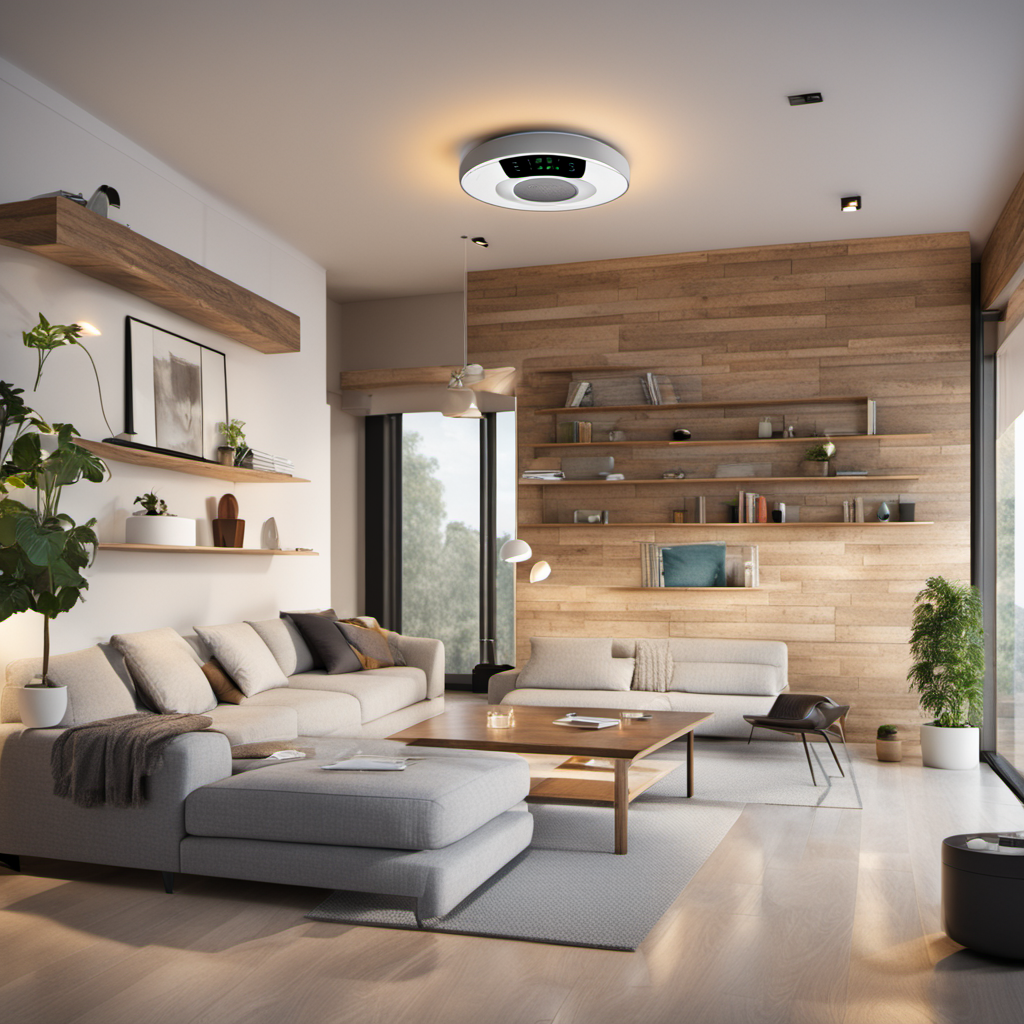Navigate the Smart Home Landscape: Features Demystified

Embarking on the Smart Home Journey
What Makes a Home Smart?
A smart home is defined by its ability to connect various devices and systems, allowing for remote control and automation. Through the integration of technology, these homes enable users to enhance comfort, convenience, and security. Several key components contribute to making a home smart, including:
- Connected Devices: Appliances and gadgets that can communicate and be controlled remotely via apps or smart assistants.
- Home Automation Systems: Frameworks that allow multiple devices to work together seamlessly to perform specific tasks or routines.
- Internet Connectivity: A stable internet connection is essential for the interaction between devices and remote access.
To further illustrate the concept of smart home technology, here’s a summary table of common features that define a smart home:
| Feature | Description |
|---|---|
| Smart Thermostat | Adjusts heating and cooling automatically based on usage patterns. |
| Smart Speakers | Voice-controlled devices that can control other smart devices and provide information. |
| Smart Security Systems | Monitors home security through cameras and alarms, accessible via smartphones. |
| Smart Appliances | Allows control over household appliances for improved efficiency. |
Benefits of Smart Home Technology
The integration of smart home technology offers numerous advantages for homeowners. These benefits can enhance the living experience, improve efficiency, and save money. Here are some significant benefits of adopting smart home features:
- Increased Convenience: Smart homes allow for automating daily tasks, making life easier. Users can control devices with voice commands or through smartphone apps.
- Enhanced Security: Advanced security systems provide real-time monitoring and alerts, ensuring peace of mind when at home or away. For more on this topic, see our article on smart home benefits.
- Energy Efficiency: Smart devices can optimize energy consumption, reducing utility bills. Smart thermostats and lighting can adapt based on occupancy and usage patterns, leading to significant savings over time.
- Remote Access: Homeowners can monitor and control their homes from anywhere, increasing control and flexibility. This is particularly beneficial for managing security devices and energy consumption.
To gain a better understanding of the overall advantages of adopting smart home technologies, the following table summarises various benefits:
| Benefit | Impact |
|---|---|
| Convenience | Streamlines daily routines |
| Security | Enhances home safety and awareness |
| Energy Efficiency | Reduces energy waste and costs |
| Remote Monitoring | Provides control from any location |
Understanding these smart home features explained provides a solid foundation for those interested in entering the tech-savvy world of smart living. By leveraging these advantages, individuals can create a more efficient and comfortable living environment. For further insights into the benefits of home automation and smart home technology advantages, readers can explore additional resources to expand their knowledge.
Understanding Key Smart Home Features
As users begin their exploration of smart home technology, understanding key features becomes essential. Here are some prominent features that contribute significantly to a smart home experience.
Voice Control Systems
Voice control systems are at the forefront of smart home interaction. They allow users to control various devices through voice commands, making operations hands-free and convenient. This technology can manage everything from lights to thermostats, making daily tasks simpler.
| Feature | Description |
|---|---|
| Compatibility | Many voice control systems integrate with various smart devices, allowing unified control. |
| Custom Commands | Users can set up custom commands for specific functions, improving usability. |
| Language Support | Most systems support multiple languages, making them accessible to a broader audience. |
For individuals keen on learning more about the transformative impact of voice control, refer to the article on smart home benefits.
Smart Lighting Solutions
Smart lighting solutions enable users to control their lighting preferences remotely. This feature includes options for adjusting brightness, colour, and even scheduling lights to turn on or off automatically. Enhancing both comfort and security, smart lighting systems play a pivotal role in the overall smart home ecosystem.
| Attribute | Standard Feature |
|---|---|
| Dimming | Ability to adjust the brightness of lights remotely. |
| Colour Options | Range of colours available, allowing for mood setting. |
| Energy Efficiency | Many smart bulbs consume less energy than traditional bulbs. |
For more insights on how these lighting solutions contribute to homes, explore the article on advantages of smart home technology.
Home Security and Surveillance
Home security and surveillance systems are integral to smart homes. These systems offer features such as video monitoring, motion detection, and remote access to ensure safety. Users can typically receive real-time alerts on their smartphones regarding any suspicious activity, making home security easily manageable.
| Security Feature | Description |
|---|---|
| Real-time Alerts | Notifications sent to smartphones when motion is detected. |
| HD Camera Quality | Many systems offer high-definition video for clear surveillance. |
| Remote Monitoring | Users can access their camera feeds from anywhere in the world. |
For a deeper understanding of the advantages of these security features, check the article on benefits of home automation.
Energy Management Tools
Energy management tools provide insights into a household's energy consumption, helping users monitor and optimise their usage. This feature can lead to significant savings on energy bills and promotes eco-friendly practices.
| Tool | Functionality |
|---|---|
| Smart Thermostats | Adjust heating and cooling settings based on user behaviour. |
| Energy Monitoring Devices | Track real-time energy usage of household appliances. |
| Automation Schedules | Users can set schedules for devices to operate efficiently. |
To fully grasp the potential of energy management tools within smart homes, review the article on smart home technology advantages.
Understanding these key features allows individuals to appreciate the transformative potential of smart home technology. Each feature plays a crucial role in enhancing convenience, safety, and energy efficiency, making them integral components of modern living.